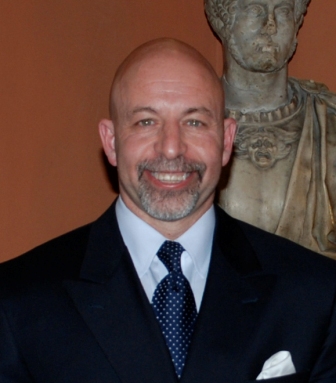Featured
 Maj. Gen. Robert Scales, USA (Ret.) is a Senior Fellow of the Potomac Institute for Policy Studies and a former commandant of the US Army War College. In an op-ed for The Washington Post, he comments on the new military strategy unveiled by the Obama Administration. Maj. Gen. Scales writes that the new strategy risks repeating the mistakes of past administrations who have sought to downsize the armed forces, leaving the US unprepared for future conflicts. Click here to read the article in full.
Maj. Gen. Robert Scales, USA (Ret.) is a Senior Fellow of the Potomac Institute for Policy Studies and a former commandant of the US Army War College. In an op-ed for The Washington Post, he comments on the new military strategy unveiled by the Obama Administration. Maj. Gen. Scales writes that the new strategy risks repeating the mistakes of past administrations who have sought to downsize the armed forces, leaving the US unprepared for future conflicts. Click here to read the article in full.

Potomac Institute for Policy Studies Senior Fellow Tevi Troy, PhD, is a former deputy secretary of the US Department of Health and Human Services, a writer and consultant on health care and domestic policy, and a presidential and political historian. In the Winter 2012 issue of National Affairs, he writes about the recent politicization of Washington think tanks. Dr. Troy warns that as a result of a phenomenon he describes as “lose an election, gain a think tank," many think tanks are becoming so dominated by one political party or another that they risk losing their value as unbiased sources of solutions to public policy problems. While the Potomac Institute remains avowedly nonpartisan, Dr. Troy writes that some newer think tanks make no bones about the fact that they exist to serve a political purpose. Click here to read the article in full.
 The Potomac Institute for Policy Studies is pleased to announce that Herbert A. Hunter has joined the Institute as Special Security Officer and Administration Manager. Mr. Hunter has over 25 years of experience in the security field and will oversee various aspects of the Institute's security and administrative operations.
The Potomac Institute for Policy Studies is pleased to announce that Herbert A. Hunter has joined the Institute as Special Security Officer and Administration Manager. Mr. Hunter has over 25 years of experience in the security field and will oversee various aspects of the Institute's security and administrative operations.
Potomac Institute Executive Vice President and COO Tom O'Leary commented, "We are all very pleased to have someone of Mr. Hunter's experience join our team and we all look forward to working with him."
Mr. Hunter says he is looking forward to being a part of the Potomac Institute. His most recent position was at CACI, as an Information Specialist and SAPCO Administrator supporting DARPA.
Read more: Herbert A. Hunter Is New Special Security Officer
 Potomac Institute for Policy Studies Senior Fellow Amb. David Smith, (Ret.), is a former US arms negotiator and a defense, foreign affairs, and international security expert who currently serves as Director of the Georgian Security Analysis Center in Tbilisi, Georgia. In comments to Voice of America on the 20th anniversary of the collapse of the Soviet Union, he recalls the 1991 START treaty. Amb. Smith notes that from the Soviet perspective, the pact represented a way to demonstrate global significance on a par with that of the US. Click here to read and watch.
Potomac Institute for Policy Studies Senior Fellow Amb. David Smith, (Ret.), is a former US arms negotiator and a defense, foreign affairs, and international security expert who currently serves as Director of the Georgian Security Analysis Center in Tbilisi, Georgia. In comments to Voice of America on the 20th anniversary of the collapse of the Soviet Union, he recalls the 1991 START treaty. Amb. Smith notes that from the Soviet perspective, the pact represented a way to demonstrate global significance on a par with that of the US. Click here to read and watch.
 Prof. James Giordano, PhD, is Vice President for Academic Programs and Director of the Center for Neurotechnology Studies at the Potomac Institute for Policy Studies. In the latest post on his blog Neurosecurity, he writes about the ongoing debate over the application of neuroscience and neurotechnology in national security, intelligence and defense (NSID). Prof. Giordano notes that some in the neuroscientific community have called for their colleagues to disavow any involvement in NSID. But he argues that while ethical and moral probity must be maintained, avoidance is not the answer. Prof. Giordano writes, "Thus, I call for some – but certainly not all – neuroscientists and neuroethicists to be actively involved in the discussion and debate, as informed, experienced experts at those tables where guidelines and policies are made, to work proactively to provide lenses and voices to report what neuroscience can and cannot do, and to be participatory in the formulation of directives that shape and govern the ways that neuroS/T should – and should not – be utilized." Click here to read the post in full.
Prof. James Giordano, PhD, is Vice President for Academic Programs and Director of the Center for Neurotechnology Studies at the Potomac Institute for Policy Studies. In the latest post on his blog Neurosecurity, he writes about the ongoing debate over the application of neuroscience and neurotechnology in national security, intelligence and defense (NSID). Prof. Giordano notes that some in the neuroscientific community have called for their colleagues to disavow any involvement in NSID. But he argues that while ethical and moral probity must be maintained, avoidance is not the answer. Prof. Giordano writes, "Thus, I call for some – but certainly not all – neuroscientists and neuroethicists to be actively involved in the discussion and debate, as informed, experienced experts at those tables where guidelines and policies are made, to work proactively to provide lenses and voices to report what neuroscience can and cannot do, and to be participatory in the formulation of directives that shape and govern the ways that neuroS/T should – and should not – be utilized." Click here to read the post in full.
